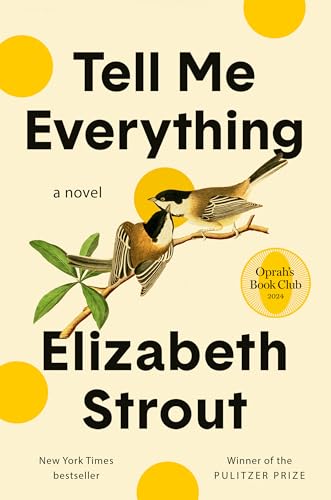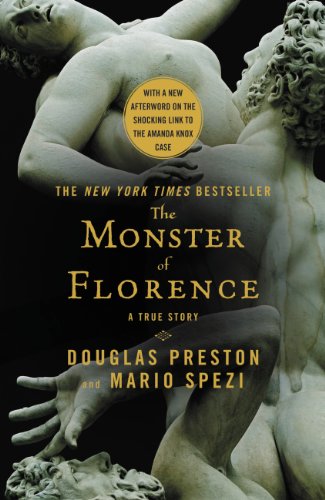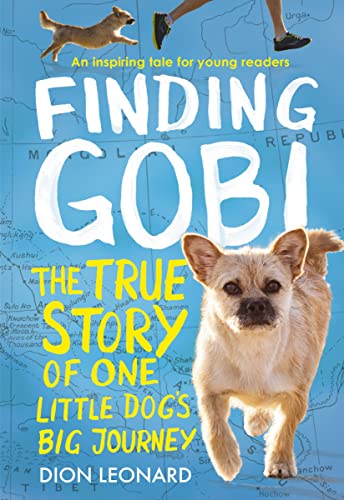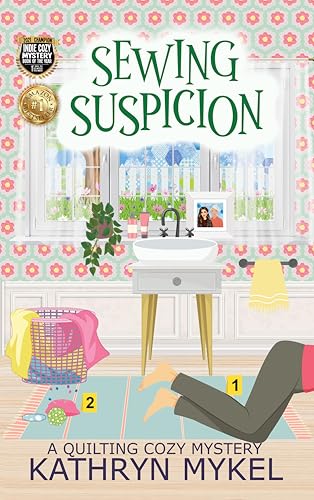References to prices on this website refer to prices on the main Amazon.com website for US customers. Prices will vary for readers located outside the US, and prices for US customers may change at any time. Always check the price on Amazon before making a purchase.
Why should I provide my email address?
Start saving money today with our FREE daily newsletter packed with the best FREE and bargain Kindle book deals. We will never share your email address!
Sign Up Now!

It’s Giveaway time! Get a free bonus entry into our monthly raffle and check out Tell Me Everything: Oprah’s Book Club: A Novel by Elizabeth Strout

Dominic spends his life helping others, but he’s about to learn that finding someone special is going to help himself. Dominic by S.L. Carpenter
Dominic spends his life helping others, but he’s about to learn that finding someone special is going to help himself. Dominic by S.L. Carpenter

Where Will We Sleep? is a revised edition focusing on poverty and homelessness. Where Will We Sleep by George Thomas Clark
Where Will We Sleep? is a revised edition focusing on poverty and homelessness. Where Will We Sleep by George Thomas Clark

It’s Giveaway time! Get a free bonus entry into our monthly raffle and check out The Monster of Florence by Douglas Preston
It’s Giveaway time! Get a free bonus entry into our monthly raffle and check out The Monster of Florence by Douglas Preston

Bring home the incredible true story of a friendship so strong that it crosses the globe! Finding Gobi: Young Reader’s Edition: The True Story of One Little Dog’s Big Journey by Dion Leonard
Bring home the incredible true story of a friendship so strong that it crosses the globe! Finding Gobi: Young Reader’s Edition: The True Story of One Little Dog’s Big Journey by Dion Leonard

A story of coming of age, of learning not to be powerless, and of healing each other’s hearts. OBaaT – A Novel by bestselling author Alice Vachss
A story of coming of age, of learning not to be powerless, and of healing each other’s hearts. OBaaT – A Novel by bestselling author Alice Vachss

It’s Giveaway time! Get a free bonus entry into our monthly raffle and check out Unsheltered: A Novel by Barbara Kingsolver
It’s Giveaway time! Get a free bonus entry into our monthly raffle and check out Unsheltered: A Novel by Barbara Kingsolver

What if you were suddenly paralyzed in the recovery room? Dead Still: A Medical Thriller by Barbara Ebel
What if you were suddenly paralyzed in the recovery room? Dead Still: A Medical Thriller by Barbara Ebel

Change IS Possible with this 3-in-1 BOXED SET ALERT! The Acceptance and Commitment Therapy Workbook Toolbox by Ava Walters
Change IS Possible with this 3-in-1 BOXED SET ALERT! The Acceptance and Commitment Therapy Workbook Toolbox by Ava Walters

Horse Lovers’ Sensation! Get ready to jump and Rise to the Horizon! Rise to the Horizon (Horse Whisperer’s story) by Hyunah KIM
Horse Lovers’ Sensation! Get ready to jump and Rise to the Horizon! Rise to the Horizon (Horse Whisperer’s story) by Hyunah KIM

“The single best book about prosecuting sex crimes in America, period.” Sex Crimes: Then and Now: My Years on the Front Lines Prosecuting Rapists and Confronting Their Collaborators by Alice Vachss
“The single best book about prosecuting sex crimes in America, period.” Sex Crimes: Then and Now: My Years on the Front Lines Prosecuting Rapists and Confronting Their Collaborators by Alice Vachss

Secrets and a patchwork of white lies. Can Alex Bailey string together the truth before her life unravels? Sewing Suspicion: A Quilting Cozy Mystery by Kathryn Mykel
Secrets and a patchwork of white lies. Can Alex Bailey string together the truth before her life unravels? Sewing Suspicion: A Quilting Cozy Mystery by Kathryn Mykel


Introducing A New, Weekly Feature: Dispatches From Publetariat.com – Beginning With Advertising In Ebooks: An Inevitable Outcome
Advertising In Ebooks: An Inevitable Outcome
I made a passing comment on Twitter yesterday that led to some heated discussion. My comment was this:
Which I followed with this tweet:
Man, that triggered some visceral reactions from a lot of people. Particularly the advertising part. I think multimedia ebooks are inevitable too, but they’re already showing up in some guises. It’s a matter of ereaders catching up that stands between the standard ebook as it is now and the future ebook full of other media.
But when it comes to advertising in ebooks, I think it’s something that people need to accept. There are many reasons, not least the desire to monetize the ebook and keep “cover” prices down. I’m a big fan of ebooks, but I believe they need to be a lot cheaper than print books. I know all about the general production, formatting and so on, but the same applies to print books. The simple fact is that a person doesn’t get a physical object and the price needs to reflect that. Also, with ebook retailers, the margins are much wider. I make a bigger royalty on a Kindle version of RealmShift, for example, than I do on a print version, even though the Kindle edition is $2.99 and the print edition $9.99. But it’s obviously in everyones interests for publishers to make a healthy profit as well as authors. The more money a publisher has, the more authors they can take on and the more books they can produce. The more authors and books a publisher has on board, the more choice and variety the reading public have. It’s a win for everyone. But how to make it happen?
A lot of people on Twitter yesterday complained about ads interrupting the reading experience. I agree that if ads suddenly popped up when you turned a page, that would piss me off no end. But that’s not how it has to work. When you buy a DVD, you put it in and you get some ads and trailers before the film starts and maybe some afterwards as well. The movie experience itself is solid and uninterrupted. I see this as the way forward with ebooks. Hopefully consumer demand will force that to happen. If publishers start putting ads in the middle of books, customers should rightly voice their rage and refuse to buy from the publisher any more. But if you have to flick through a few pages of ads before the start of chapter one, it’s a slightly annoying but overall not very debilitating chore. Especially if the presence of those few pages of ads means the ebook is a reasonable price and the author and publisher are making money. Obviously, with the presence of ads, it’s the publisher that stands to make the most, but don’t forget my point above about publishers with good profit margins taking on more authors and giving readers more books.
I even see a time when an ebook might open with visual or video ads that you have to endure before the book itself starts that aren’t just the publisher promoting their other books, but third party advertisers buying space. Imagine an ebook of something by John Grisham, Dan Brown or J K Rowling. These are people that sell a lot of books. If their publisher sold advertising space in the opening pages of their books, that space could be sold at a premium. The publisher could stand to make a lot of money. Hopefully we’d see some of that money given back to authors in higher advances and royalties as well as being invested in future projects. I realise this is something of a utopian view and perhaps rather naive, but we can all dream. If the money is there, we can all lobby to see at least some of it spent right.
With most ereaders now utilising wifi and 3G technology, we could even see a situation where a different set of ads pop up every time you open a book. Ideally you’d only ever see ads at the start of the book, but if the advertising code used the wireless networks you might decide to reread a book a year later and see entirely new ads at the start. We’re already seeing video games where the billboards are updated with current advertising in-game. It’s no great stretch to see that happen with ebooks, thereby making that advertising space more profitable. Someone on Twitter (@NomentionofKev) even mentioned that the ereaders themselves might carry the ads, not the books. That risks a situation where every time you turn on the reader, you see an ad. For me, that’s going too far and I’d avoid that kind of reader. But it’s quite possible that we’ll see that situation before long.
Someone else (@Cacotopos) said that they have a demand list for ebooks – 1) no DRM 2) .ePub 3) no intertextual ads. And they noted that price wasn’t even on their list yet. I tend to agree with their list, but I would definitely add 4) Never more than $5 RRP.
Advertising annoys all of us, but it’s a necessary evil in a capitalist society. Sure, it would be great to have an ebook with no advertising, but isn’t it better to suffer a bit of advertising and have more choice of books, more new authors given a chance to get their work out to wide audiences and cheaper ebook purchase prices? I’m convinced that ads in ebooks are inevitable. It’s down to us to think about that and start voicing our opinions now so that we can hopefully help to shape the way that advertising is approached from the outset.
What are you thoughts on the matter?
This is a cross-posting from Alan Baxter‘s The Word.
Share via: